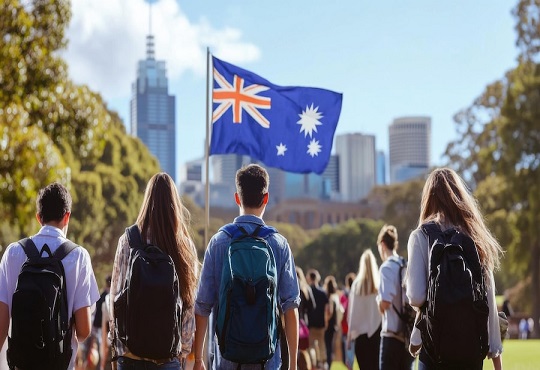Australia Raises Foreign Student Cap to 295 000, Focuses on SEA

- Australia to raise international student cap to 295,000 in 2026.
- Focus on Southeast Asian students and mandatory housing assurance.
- Policy controls migration while boosting education and economy.
The government announced that Australia will increase its foreign student cap by 9% to 295,000 next year, focusing on applicants from Southeast Asia.
Last year, limits on immigration were revealed to address rein migration that had led to a rise in housing costs, with 270,000 spots set for 2025.
The government stated that an extra 25,000 slots would be available in 2026 since the policy was effectively reducing “out of control” international student figures.
“This is about making sure international education grows in a way that supports students, universities, and the national interest,” Education Minister Jason Clare said in a statement.
Australia issued almost 600,000 student visas in the 2023 fiscal year, as international students flocked back to the nation in unprecedented numbers after COVID-19. The largest groups of students in Australia are from China and India.
Along with implementing a cap on numbers, the government also significantly increased the visa fee for international students in 2024 and committed to closing loopholes in regulations that permitted them to prolong their stay indefinitely.
According to International Education Assistant Minister Julian Hill, the government's efforts to reduce migration were “yielding results” and permitted a slight rise in the cap in 2026.
“The numbers were growing out of control,” Hill told national broadcaster ABC.
“The government has taken tough decisions over the last 12 months, not always loved by the sector, to get the numbers down and get them to a more sustainable footing.”
Approximately two-thirds of positions will be designated for universities and one-third for vocational skills training. The government stated that larger, public universities must show that domestic and international students can access “safe and secure housing” and must recruit a greater number of students from Southeast Asia to boost their funding allocations.
Also Read: UK Makes eVisas Mandatory for International Students and Workers
It was important “for Australia‘s future soft power that we continue to bring the best and brightest from our (Southeast Asian) neighbours to have a bit of Australia with them for the rest of their life”, Hill said.
Prime Minister Anthony Albanese’s Labor government has prioritized relations with Southeast Asia to lessen Australia's economic reliance on China.
Universities Australia praised the “sensible” rise in available spots.
“Universities have called for growth in this critically important sector, and the government has honoured this,” CEO Luke Sheehy said.
Australia ranks among the top countries worldwide for the proportion of international students. The industry added over $51 billion ($33.05 billion) to the economy in 2024, making it the leading services export of the nation.

